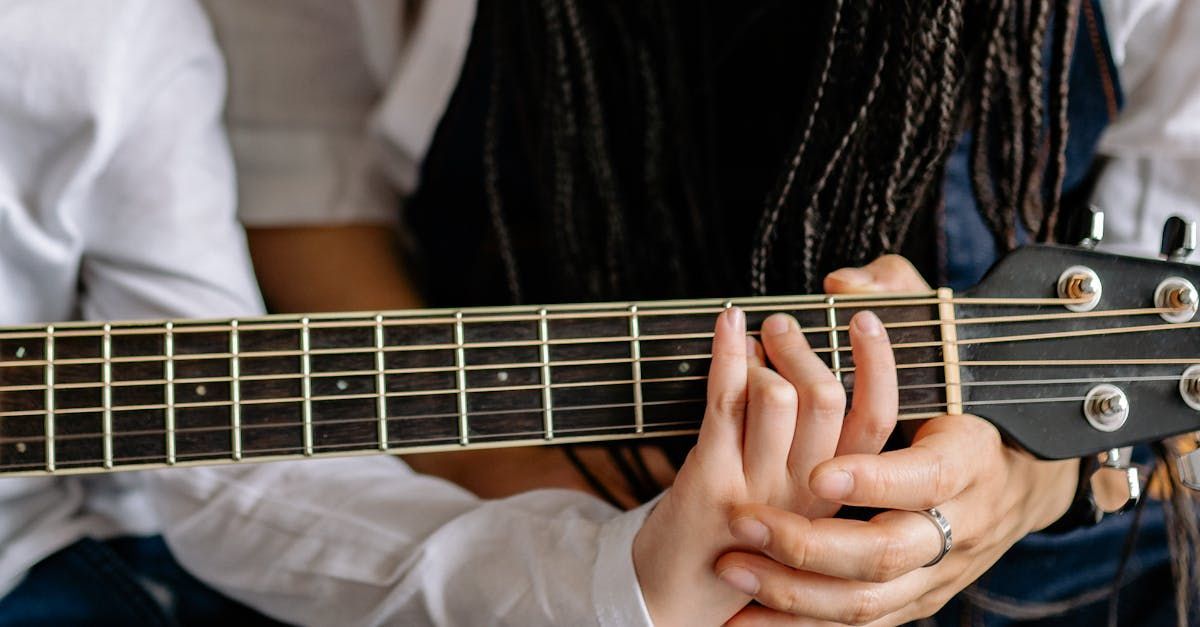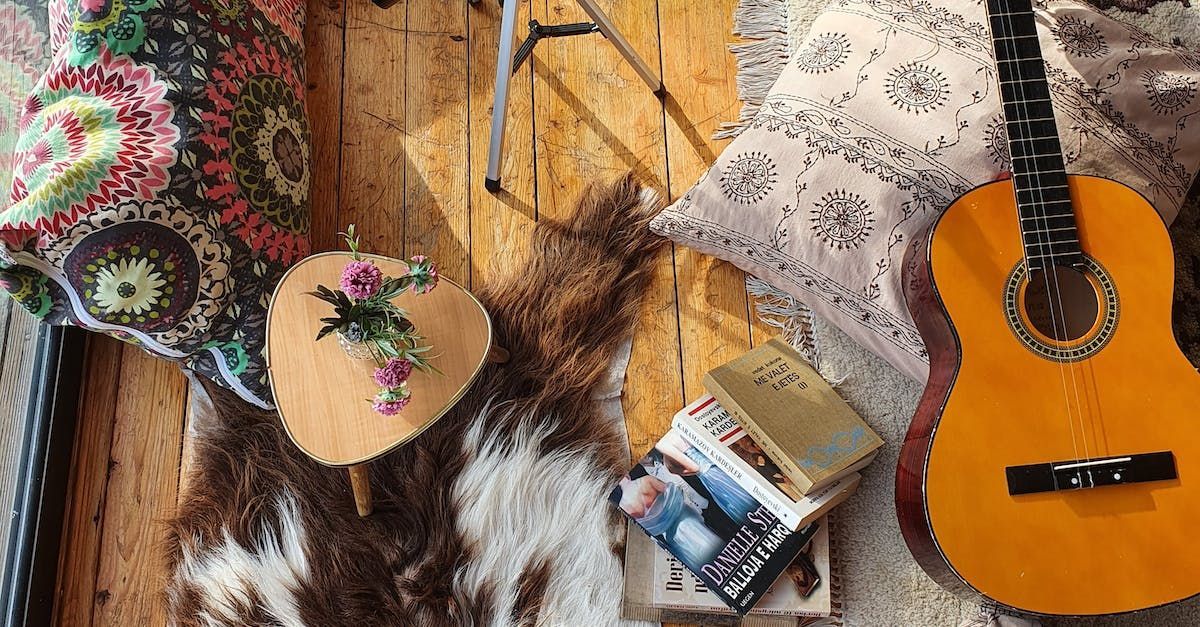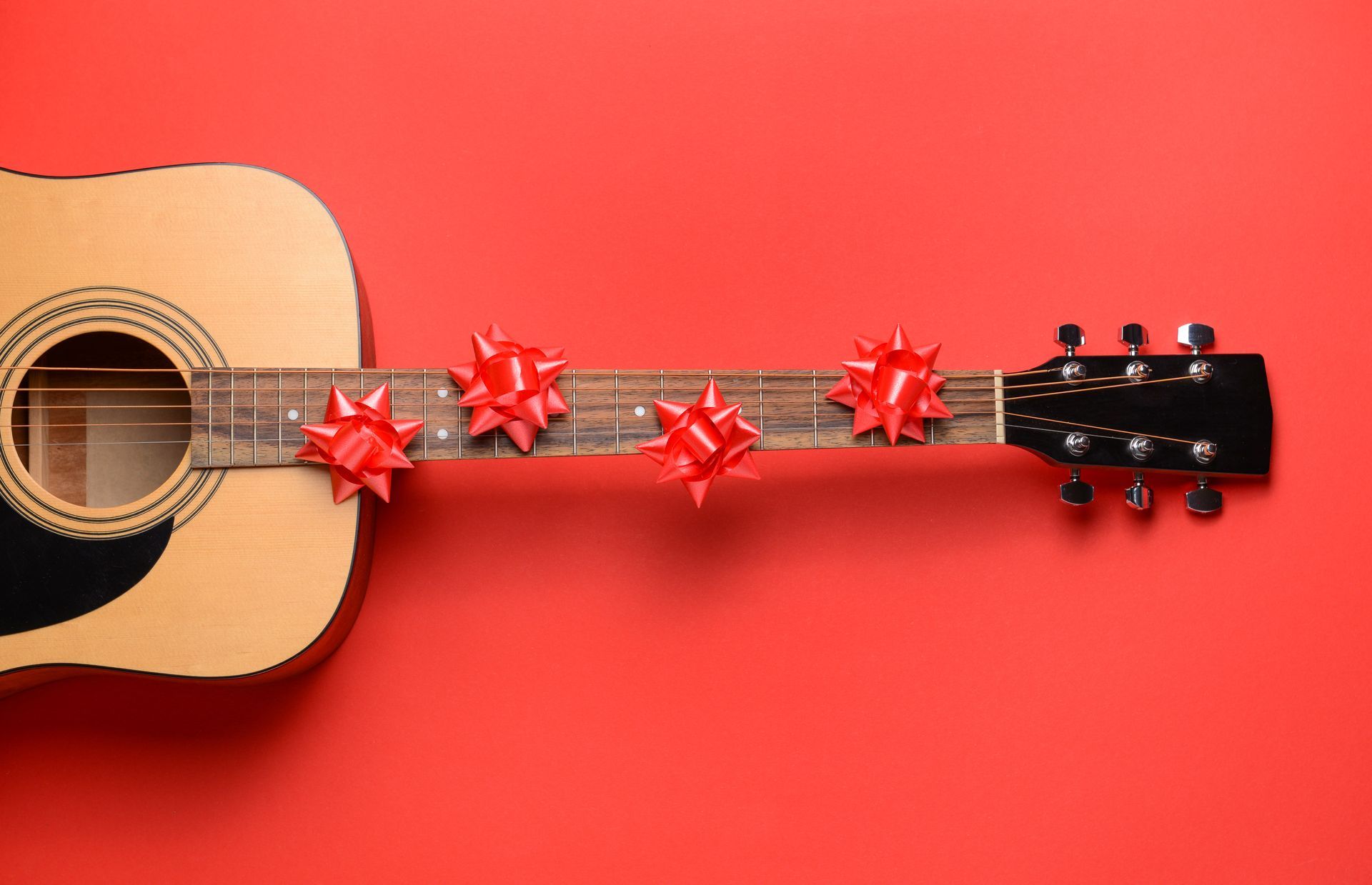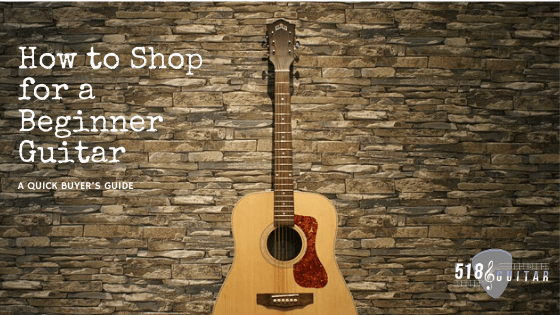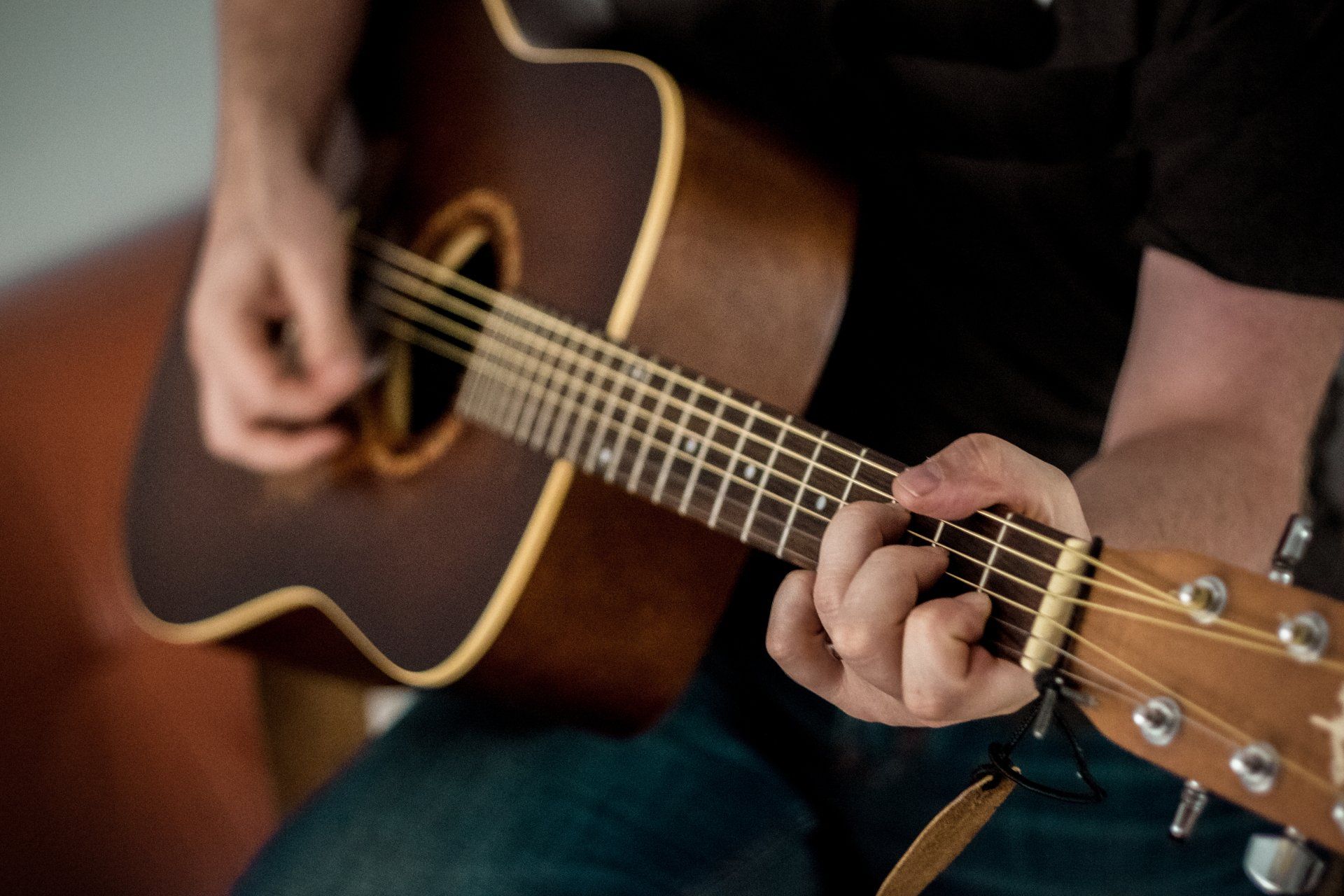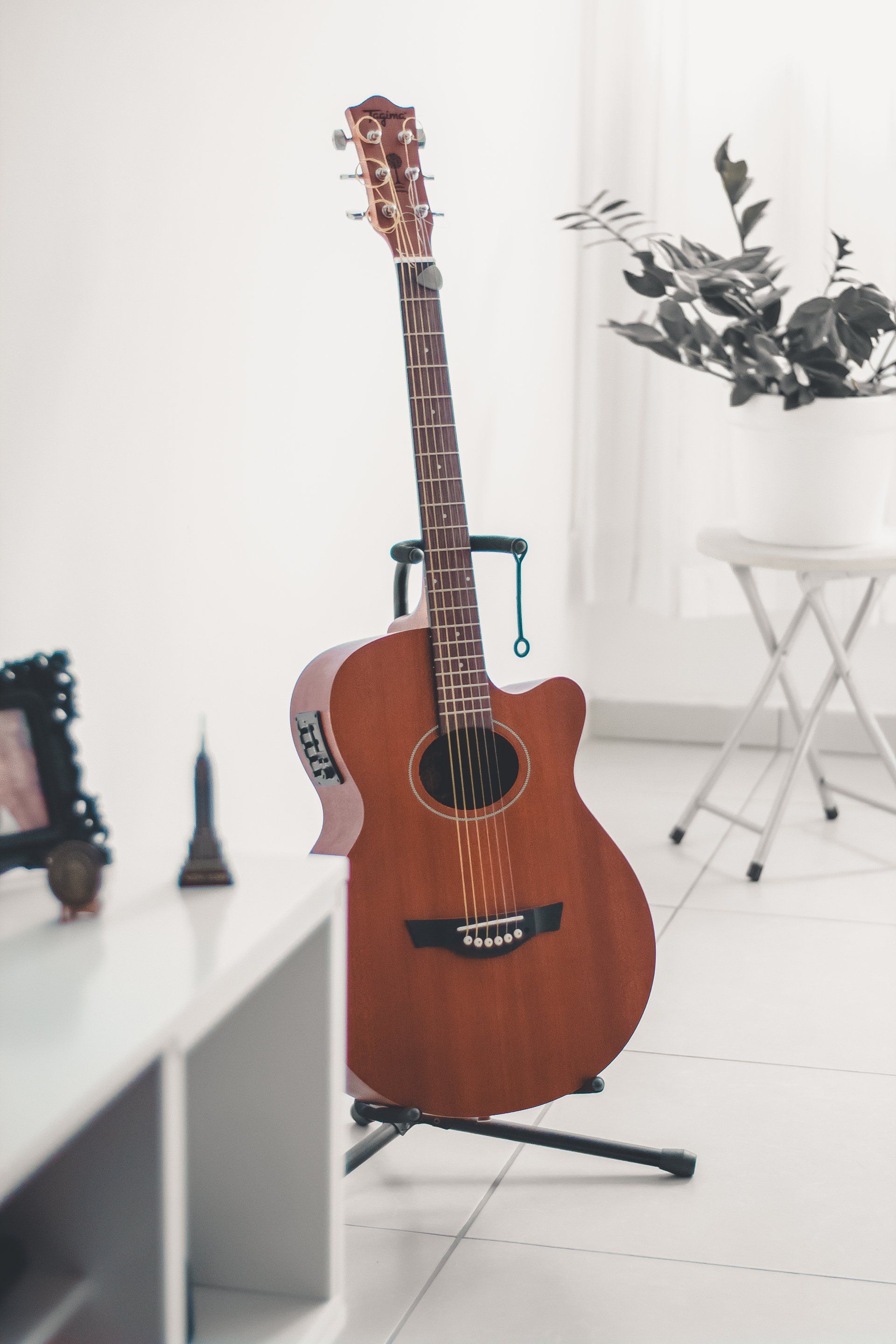How to Shop for a Beginner Guitar - A Quick Buyer's Guide
What you Need Before Buying a Beginner Guitar
There are a few things to know before going online or heading out in person to purchase your first guitar, whether for yourself or a loved one. The top three questions are related to cost, quality and size. So, while you are thinking about your first steps, please take a moment to see that article.
Now that you've got some information, let's take the next step together!
Where to Shop for a Beginner Guitar
Online vs. Big-Box Stores vs. Mom-and-Pop Shops
Let's talk about the Amazonian elephant in the room. Don't buy a beginner guitar from Amazon. Just don't. Do. Not. I have seen (or shall I say, "experienced") many such items. One of my students' Amazon.com-born guitars actually got BETTER after it fell down the stairs, much to his chagrin (I think he was trying to "need" a new guitar). These guitars often arrive broken and unplayable. You are shipping a plywood guitar (let's say multi-ply, it makes my heart feel better about all this) in a cardboard box packed in Styrofoam in freezing conditions for a several-day journey. It's not going to end well.
There are, however, several reputable online dealers such as Sweetwater.com, Americanmusical.com and musiciansfriend.com. They offer hearty return policies and reliable shipping. Now, let's turn this frown upside-down and explore your local big-box stores.
Buying from a big-box store(like Guitar Center and Sam Ash) is an okay-ish idea if you know what to look for, and what to ask the sales rep on the floor. At least get on their email list about a week prior to your visit for coupon and promo reasons. Also, they usually have great credit line and financing terms. Just know this: the pressure on big-box store employees from corporate this time of year is TREMENDOUS. They NEED to make their numbers. That's you. Their goal is to move units of poorly made beginner guitars, knowing that some may never even be opened or played.
Purchasing from a local mom-and-pop shop is recommended, especially if you can make a couple trips. Trip one will be for meet/greet/research; trip two will be the purchase. Work with ONE employee, be friendly, and ask the questions I give you below. Hint: Haggle. They expect it, and because they don't answer to a corporate ladder, they often have more flexibility in pricing. And, there's usually less pressure on employees to sell.
What to do at the Shop
You made it to the guitar store. What now?
- Have a budget in mind. Don't tell anyone.
- Be nice. You catch more flies (and discounts and swag) with honey
- Be okay with walking out without a guitar.
- Tell the staff you are interested in "beginner" guitars, and you are seriously reviewing some options and would like assistance.
- Tell the staff the age, height, and size of the person you are buying for. This is essential. One size does not fit all.
- Ask the staff for the top three recommendations based on the least amount of returns/repair/warranty issues. This is important. I'm going to list it again
- Ask the staff for beginner guitar recommendations with the least amount of returns/repair/warranty issues.
- Ask the staff, of the three guitars, which will hold tuning the best. If the answer to #7 and #8 are the same guitar, winner-winner chicken dinner. If not, go with the choice that has the least repair returns.
- If the staff hand you a new guitar in a box after putting the floor model back, OPEN THE BOX and make them tune-up and inspect the instrument.
*Helpful Hint: If you REALLY want to be a qualified buyer, ask if the guitar has a solid top or "multi-ply laminate" top. A guitar with a solid top sounds good, like a guitar. A guitar with a multi-ply top sounds like a rubber-banded cigar box guitar under a lonely bridge on a cold night. In other words, plywood guitars sound like broken dreams. I clearly recall the outhouses on the Appalachian trail being made of plywood, just a bit thicker than a guitar.
As for return policies and warranties - do your usual homework there. Ask and learn; all stores are a bit different.
If you go to the big-name store, they are going to offer you a "protection plan". Just know the sales rep gets big, big points for selling the plan. Now...is the protection plan worth it?
To Protect, or Not to Protect that Beginner Guitar, that is the Question
All new guitars should come with both a store warranty and a manufacturer's warranty. Ask about them.
Some stores' additional protection plan will be for a set amount of time, cost an additional roughly 20%, and usually will insure against anything carelessly thrown at it (except...neglect - i.e., intentional mistreatment such as leaving it in a car on a hot day or cold day and the ensuing damage).
I personally used this benefit when my son's guitar combusted for "no good reason". I walked into the store and, with the plan, got the very same item immediately. It was a $200-ish guitar and a $38 plan. Yes. Worth it.
For children learners: Buy the plan
For adult learners: You shouldn't need to buy the plan if proper care is taken with the guitar
Beginner Guitar Home Storage/Maintenance
- Guitars are sensitive little creatures who want to go back to the forest. The plywood forest. Have you ever had, or seen, a real Christmas Tree (i.e., a holiday-time tree that's been felled and placed in a home while dying slowly) after about 2.5 weeks? Needles everywhere? Your guitar is no different. Warping, drying and cracking in the winter and swelling and cracking occur astonishingly quickly in the summer.
You must humidify. Your home winter heating system ruins the guitar. It happens so, so quickly. I've had students come for their first lesson with their new guitar already warped. So:
Buy a hard shell or poly-foam case that latches shut tightly. Softshell cases do not sufficiently keep moisture. Find a hardshell case with latches that shut tight. No zippers. Some guitars come with hard cases; if not, I recommend Gator, Roadrunner, or Musician's Gear brands. - Buy moisture control (Boveda brand 49% moisture packets are affordable; cheapest at Amazon). Place 3 moisture pouches in the guitar case. One under the guitar's head and two near, or in, the guitar's body.
- Keep it away from heaters
- Keep it indoors
- Don't ever leave it in the car or outside for more than necessary
- Maintain 50% humidity in the guitar case all year through the use of humidity packets programmed to 45-55% humidity
Students come to me all the time with guitars that aren't cared for. A cheaper guitar already has some inherent problems. Then, without proper humidity, it cannot be tuned. The guitar will not play right. Warping, buckling and shrinking. Frets literally pop out. The glue dries up and things come apart.
Musical success is not likely if, every time I tune the guitar for the student, it goes out of tune within 10 minutes. That's really not motivating for the learner. They will dread playing it. There are no "milestones" to earn or feelings of success/pride. The student learns how to play a new chord or song and it sounds absolutely awful, no matter how beautifully and cleanly they play.
Its Time to Shop for that Beginner Guitar
If you are planning a guitar gift and want your loved one to learn and persist, invest in a worthy guitar. If you can't invest in a worthy guitar, maybe wait until there's a huge sale (Black Friday? Labor Day? July 4th?).
Ask the questions I listed above either in-person at the store, or, online via live chat if you plan to buy online. Once you have the guitar, care for it as you would a houseplant or other living thing using the recommendations from this article.
To make shopping easier click here to download our free shopping checklist!

